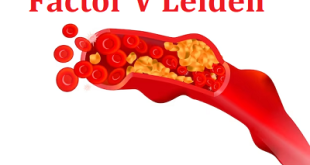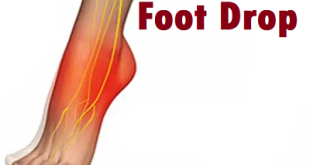Definition
Frequent urination, also known as urinary frequency, is a condition in which you feel the need to pass urine more often than usual. Frequent urination may occur due to a variety of reasons, some of which are not serious or harmful. For example, frequent urination may occur after drinking a lot of fluids, especially fluids that contain caffeine or alcohol. Pregnancy can cause frequent urination due to pressure put on the bladder by an enlarging uterus.
If frequent urination is unexplained or persistent, it can be a symptom of an underlying disease, disorder or condition. These include diabetes, urinary tract infection, enlarged prostate, and side effects of certain medications, such as diuretics.
Frequent urination can occur in all age groups and populations, and it may or may not occur with additional symptoms, such as a foul urine odor and burning with urination. In some cases, frequent urination can be due to serious or life-threatening underlying diseases, such as pyelonephritis, urosepsis or diabetes.
Risk factors
Factors that increase your risk of developing urinary incontinence include:
Gender: Women are more likely to have stress incontinence. Pregnancy, childbirth, menopause and normal female anatomy account for this difference. However, men with prostate gland problems are at increased risk of urge and overflow incontinence.
Age: As you get older, the muscles in your bladder and urethra lose some of their strength. Changes with age reduce how much your bladder can hold and increase the chances of involuntary urine release.
Being overweight: Extra weight increases pressure on your bladder and surrounding muscles, which weakens them and allows urine to leak out when you cough or sneeze.
Smoking: Tobacco use may increase your risk of urinary incontinence.
Family history: If a close family member has urinary incontinence, especially urge incontinence, your risk of developing the condition is higher.
Other diseases: Neurological disease or diabetes may increase your risk of incontinence.
Causes of Frequent Urination
There are a number of frequent urination causes that doctors consider when a person complains about the sudden urge to urinate or the need to urinate frequently. One cause that sounds almost too simple is anxiety
Stress and anxiety can trigger stress hormones to travel to certain spots in the body – the bladder is one of those areas – and bring about physiological changes. Relaxation and stress reduction often eliminate frequent urination.
Below is a list of other potential causes of frequent urination:
- Urinary tract infection – An infection in any part of your urinary. Most infections are in the bladder and the urethra.
- Medications – Certain drugs, including diuretics, can lead to increased urination
- Enlarged prostate– This can lead to frequent urination in men.
- Infection of the prostate gland – A bacterial infection that causes frequent urination.
- Kidney infection – Can involve symptoms like cloudy and smelly urine along with urination frequency.
- Overactive bladder– This is a sudden urge to urinate that you can’t control due to unexplained, uncontrolled bladder contractions.
- Tumor or mass in the pelvic area
- Interstitial cystitis– This is inflammation of the bladder wall.
- Bladder cancer
- Bladder dysfunction
- An abnormal opening in the urinary tract
- Urinary incontinence
- Diverticulitis– This is inflammation of the inner lining of the large intestine.
- Diabetes – Can happen when the body tries to rid itself of unused glucose through the urine.
- Diabetes insipidus – An uncommon disorder leading to an intense thirst and excretion of large amounts of water.
- Artificial sweeteners – Known for irritating the bladder, causing frequent urination
- Alcohol and caffeine – can act as a diuretic, leading to increased urination.
- Cystocele– Weakening of the supporting tissue between a woman’s bladder and vaginal wall
- Kidney stones
- Vaginitis
Symptoms
Symptoms of frequent urination:
- Pain while urinating
- Urine that has a bloody or an unusual color
- Urinary incontinence or gradual loss of bladder control
- Increased urge to urinate but the difficulty in urinating
- An unusual discharge from the vagina or penis
- Increased thirst or appetite
- Fever
- Chills
- Vomiting
- Nausea
- Lower back pain
Complications of Frequent Urination
Complications associated with frequent urination vary depending on the underlying disease, disorder or condition. Complications of untreated or poorly controlled diseases, such as diabetes and kidney infection, can be serious and even life-threatening. You can minimize the risk of serious complications of frequent urination by following the treatment plan you and your health care professional design specifically for you.
Underlying causes of frequent urination can lead to serious complications including:
- Diabetic coma
- Infertility
- Ketoacidosis
- Permanent kidney damage
- kidney disease, and kidney failure (renal failure)
- Shock
- Spread of cancer (metastasis)
- Urosepsis and septicemia (blood infection)
Diagnosis and test
Your doctor will perform tests to determine what’s causing you to urinate frequently. They’ll ask you some questions, such as:
When did your symptoms begin?
How often do you urinate?
What other symptoms are you experiencing?
Do you have any unexpected leaking of urine and in what situations?
Your doctor will most likely ask you for a urine sample to check for infection, blood, or other abnormal findings such as protein or sugar.
Your doctor will also conduct an exam of your abdomen and pelvis. This will likely include a pelvic exam and evaluation of your urethra and vagina.
Other tests that can be useful include:
Bladder scan: This is an ultrasound done on your bladder after you’ve urinated to see how much urine is left behind.
Cystoscopy: Using a lighted instrument, the doctor can take a closer look inside the bladder as well as take tissue samples if necessary.
Urinary testing (urodynamic testing): This involves a variety of tests that look to see how well the urinary system is working.
Treatment of Frequent Urination
Treatment for frequent urination will address the underlying problem that is causing it. For example, if diabetes is the cause, treatment will involve keeping blood sugar levels under control.
The treatment for overactive bladder should begin with behavioral therapies, such as:
Bladder retraining: This involves increasing the intervals between using the bathroom over the course of about 12 weeks. This helps retrain your bladder to hold urine longer and to urinate less frequently.
Diet modification: You should avoid any food that appears to irritate your bladder or acts as a diuretic. These may include caffeine, alcohol, carbonated drinks, tomato-based products, chocolate, artificial sweeteners, and spicy foods. It’s also important to eat high-fiber foods, because constipation may worsen the symptoms of overactive bladder syndrome.
Monitoring fluid intake: You should drink enough to prevent constipation and over-concentration of urine, but you should avoid drinking just before bedtime, which can lead to night-time urination.
Kegel exercises: These exercises help strengthen the muscles around the bladder and urethra to improve bladder control and reduce urinary urgency and frequency. Exercising pelvic muscles for five minutes three times a day can make a difference in bladder control.
Medications
Oxybutynin (Ditropan): Oxybutynin suppresses spasms in the smooth muscles of the bladder wall. Additionally it relaxes the detrusor.
Tolterodine (Detrol, Detrol LA): Tolterodine suppresses spasms in the smooth muscles of the bladder wall. It does not cause the mouth to dry out as much as Oxybutynin.
Solifenacin (Vesicare): Similar to Tolterodine, but with a longer half-life.
Tricyclic antidepressants such as imipramine (Tofranil) and doxepin (Sinequan, Adapin) have also been used to treat overactive bladder with some success. Their mechanism of action is not clear.
Prevention of Frequent Urination
- Because there are so many different causes for frequent urination, there is no one way to prevent it. Proper diet and avoiding excess fluids and foods that act as diuretics can reduce urinary frequency.
- Kegel exercises can keep the pelvic floor muscles well-toned and may help stave off urinary frequency as one age.
- Discussing any concerning symptoms with your doctor as soon as they appear may allow for early treatment or may prevent worsening of symptoms.
 Diseases Treatments Dictionary This is complete solution to read all diseases treatments Which covers Prevention, Causes, Symptoms, Medical Terms, Drugs, Prescription, Natural Remedies with cures and Treatments. Most of the common diseases were listed in names, split with categories.
Diseases Treatments Dictionary This is complete solution to read all diseases treatments Which covers Prevention, Causes, Symptoms, Medical Terms, Drugs, Prescription, Natural Remedies with cures and Treatments. Most of the common diseases were listed in names, split with categories.








How many times is it normal to urinate in a day
Most people urinate between six and eight times a day. But if you’re drinking plenty, it’s not abnormal to go as many as 10 times a day. You may also pee more often if you’re taking certain medications, like diuretics for high blood pressure.
I am suffering from Prostate Problems. I feel wondering to that my Report contents that no reason was founded in my scanning report.
Please consult a doctor and diagnose the problem properly.
I Understood the information. How can one avoid all these from getting this kiniof disease
I understood but what is confusing me is that exacise it can’t course another condition ?
Heavy workout also will cause this condition. It may weaken the muscles in the bladder.
urinal frequency, does it also bring dizziness in the body and vomiting?
Yes.
how much is the normal urination frequency per day? for male and for female
For most people, the normal number of times to urinate per day is between 6 – 7 times in a 24 hour period.
highly appreciated, it’s highlight me to know more and a guide to the solutions
l am urnirate always.
Please consult a doctor.
Quite wonderful in guide to change lifestyle .Thank you is of great value to me.Be blessed
Thanks for the counsel.It is quite encouraging and eye opener to me.Thanks
what type of doctor have to be consulted
Please consult a urologist.
pl advise type of doctor
please consult a nephrologist.
hi i m urinrate from many years i consult doctors but they said i m normal
Please consult a neurologist.
Good narration.I am taking tabURIMAX D for the last 2 years and changed to VELTAM-F 0.4 mg ( 0-0-1) for the last 6 months as per the advice of Urologist. But still I have to urinate 5-6 times after going to bed for sleep. I do not have deep sleep for the last 3 years. Can I have an expert advice on the treatment/medication. Thanks.
Please consult a doctor.
Urologist got tested RFT, urine, and blood test as well as ultra sound for bladder and urinary tract.
prescribed Cap Tamsol D 0.4/0.5 mg once a day for enlarged prostate 48 to 52 gm. Regular monitoring both self and by doctor.
bed-wetting at age 13. How can this be managed. Really disturbed about this #niece
Please consult a urologist.
Thanks for answering and suggestions
I av vvf which is bladder error but since when i av repair it my bladder is not normal like before but am still linking
please consult a doctor.
many times urine passes no control.
It might be because of muscle function loss but it is good to consult a urologist asap.
my 86 yr old dad has this problem @ times
he wets before he riches the toilet, hw best can u help
Please consult a doctor asap.
I really had frequent urination since childhood.Thaks for information.
the scientific words at the medication column is too big. break them down for me please
Sure it will be changed as per your request.
how can i treat blood in urine?
http://diseasesdic.com/hematuria-causes/
Here is a hint that will help men with prostrate problems that has you Urinating several times a night.When finished urinating place your hand on the lower part of your stomach,just above your pubic bone ,lift your stomach and let it drop quickly and this will empty your bladder more.Doing this has dropped my nightly toilet visits from 6 to 2 a night regularly with much sounder sleep,please try it.
can you pls suggest that kind of keggel exercise which you think can improve and strengthen bladder wall. Thanks!
To get started:
Find the right muscles. To identify your pelvic floor muscles, stop urination in midstream. Once you’ve identified your pelvic floor muscles you can do the exercises in any position, although you might find it easiest to do them lying down at first.
Perfect your technique. To do Kegels, imagine you are sitting on a marble and tighten your pelvic muscles as if you’re lifting the marble. Try it for three seconds at a time, then relax for a count of three.
Maintain your focus. For best results, focus on tightening only your pelvic floor muscles. Be careful not to flex the muscles in your abdomen, thighs or buttocks. Avoid holding your breath. Instead, breathe freely during the exercises.
Repeat three times a day. Aim for at least three sets of 10 to 15 repetitions a day.
I urinate virtually every one hour or less while sleeping (be it night or day time). On the other hand, I can stay 2, 3 or more hours without feeling to urinate – be it night or day times. kindly consider & advise. Best wishes.
Please consult a doctor.
I wanna know why a urine is light green in color, it doesn’t look normal to me.
Green urine can be a sign of a urinary tract infection or a bacterial infection that has gotten into the blood (bacteremia).
What natural herb can I use to cure Urinary tract infection?
D-Mannose: This is a type of sugar that is found in cranberries and has been shown to be effective in treating UTIs and preventing recurrence (29Trusted Source).
Bearberry leaf: Also known as uva-ursi. One study showed that a combination of bearberry leaf, dandelion root, and dandelion leaf decreased UTI recurrence.
Cranberry extract: Like cranberry juice, cranberry extract works by preventing bacteria from adhering to the urinary tract.
Garlic extract: Garlic has been shown to have antimicrobial properties and may be able to block the growth of bacteria to prevent UTIs
what is the treatment for inability to control urine
Anticholinergics. These medications can calm an overactive bladder and may be helpful for urge incontinence. …
Mirabegron (Myrbetriq). Used to treat urge incontinence, this medication relaxes the bladder muscle and can increase the amount of urine your bladder can hold.
medication required in case of infection
Drugs that are used to treat frequent urination?
Darifenacin (Enablex)
Desmopressin acetate (Noctiva)
Imipramine (Tofranil)
Mirabegron (Myrbetriq)
Oxybutynin (Ditropan)
Solifenacin (Vesicare)
Tolterodine extended-release (Detrol LA)
Trospium extended-release (Sanctura XR)
I urinate frequent and I stay very long when urinating,pls wat is d medication
Medication to treat frequent urination (we recommend you to consult a doctor for an appropriate prescription of the drug)
Darifenacin (Enablex)
Desmopressin acetate (Noctiva)
Imipramine (Tofranil)
Mirabegron (Myrbetriq)
Oxybutynin (Ditropan)
Solifenacin (Vesicare)
Tolterodine extended-release (Detrol LA)
Trospium extended-release (Sanctura XR)
I m suffering from grade 1 prostate and urine may pass or leak while I was sleeping in night. I am suffering this from last few months. My PSA report is normal, my urine culture report is ok. kindly do the needful for the same
As you’re experiencing with these symptoms your prostate cancer may extend to next grade. Kindly consult an oncologist for an appropriate prescription of medicine.
I urinate frequently three to four times at night and cold days. What’s the best treatment for this?
Treatment
Restrict fluid intake at night. Drink plenty of fluids during the day (especially water), but limit fluids 2-4 hours before you go to sleep.
Manage your use of diuretics. If you have to take a diuretic, then do so at least 6 hours before you go to sleep.
Elevate your legs or use compression socks.
Enjoy afternoon naps.
Kindly consult with a doctor for appropriate treatment.